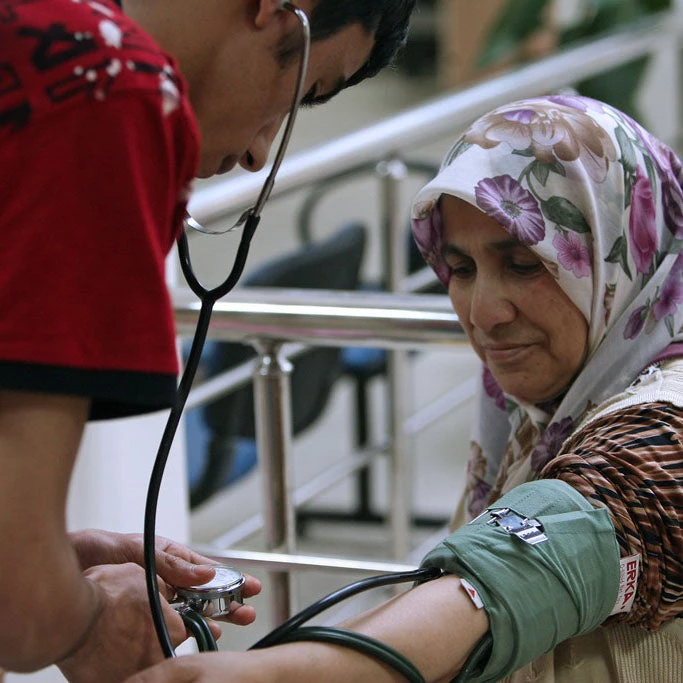 Provincial health department, Bolu Turkey
Provincial health department, Bolu Turkey
This blog is part of a series on Universal Health Coverage (UHC). Follow the conversation on Twitter #HealthForAll.
What should our key guiding posts be as we chart a course toward universal health coverage globally? When we look at the universal health coverage challenge, countries tend to fall into one of two camps: those who struggle because they have limited financial resources to meet their goals, and those who have the resources but struggle to figure out how to deploy them efficiently and effectively. Whichever category your country belongs in, and most emerging markets lie in the former, there are some guiding principles that can help you along the road.
To begin with, there is a lot of great data out there, especially in the private sector, that can help governments move toward universal health coverage in a way that works for their country. Collect, collate, share, and use this data. Don’t leave it in silos as happens too often. This is especially imperative for countries who are developing a social health insurance system as they draw up risk profiles of their population. For example, noncommunicable diseases promise to be a bigger threat than communicable diseases for many African countries by 2030. Plan accordingly.
When deciding how to move forward, remember there is no one-size-fits-all formula—country nuance matters. By all means be inspired by what another country has achieved in building up its system but do not cut-and-paste, rather work to understand its strengths and weaknesses and think how they would apply in the context of your country.
Public and private sector collaborations are increasingly common in health care and are becoming ever more varied in form. The very concept of a Public-Private Partnership (PPP) is broadening beyond the confines of what it meant when first conceived in Western Europe in the 1980s. Governments should embrace this broadening and strive to develop innovative PPPs.
Health systems are still far too centered on the cure rather than the prevention. Flipping this paradigm to prioritize prevention is essential. Embracing technology will be key to bringing about the flip.
In most countries, funding universal health care mandates will always be challenging and even more so in emerging markets. Certainly, raising adequate funding is important. But of even greater importance is getting better value for money. The scourge of out-of-pocket payments, which regularly drive people into poverty after a catastrophic illness, is starting to be tackled as countries increasingly roll out social health insurance mechanisms. While this is a welcome development, as governments’ role as payors becomes more prominent, they need to get smart quickly on how they spend.
Quality will be the zeitgeist of health care in the coming century. You can invest all you want in impressive infrastructure and comprehensive services but without quality you won’t get bang for your buck. A recent Lancet study showed that more people die from receiving poor quality health care than die from lack of access to care. Nearly all countries, developing and developed, have their work cut out for them. Quality needs to be embedded in the culture. Measuring final outcomes, as opposed tabulating treatments administered, is the way to keep your eye on the ball.
On current trajectories, we will not have enough health care professionals to achieve our universal health care goals. Steps need to be taken to start plugging the gaps now to replenish skills shortages. Technology, including digital health, can lend a helping hand in addressing the shortages. But be wary of hype surrounding any particular technology and embrace it based on positive outcomes you have observed from its deployment.
The good news is that a lot of countries, including emerging markets, are making excellent progress towards universal health coverage. We are seeing stronger political commitments all round and many governments are putting their money where their mouths are. Governments are also recognizing the benefits of working with the private sector. This is something I come across in my work as a health industry specialist at IFC, the arm of the World Bank that invests in the private sectors of emerging markets. The focus for the next decade needs to be developing innovative business and service models that deliver better value for money and which serve entire populations, harnessing both public and private means.


Join the Conversation